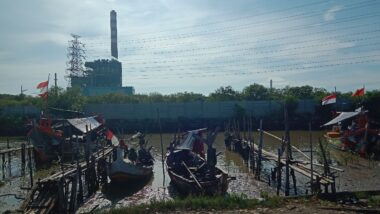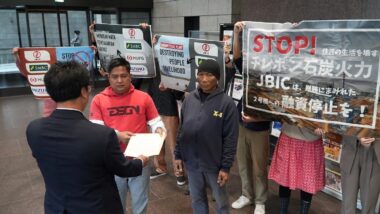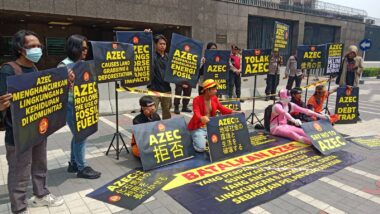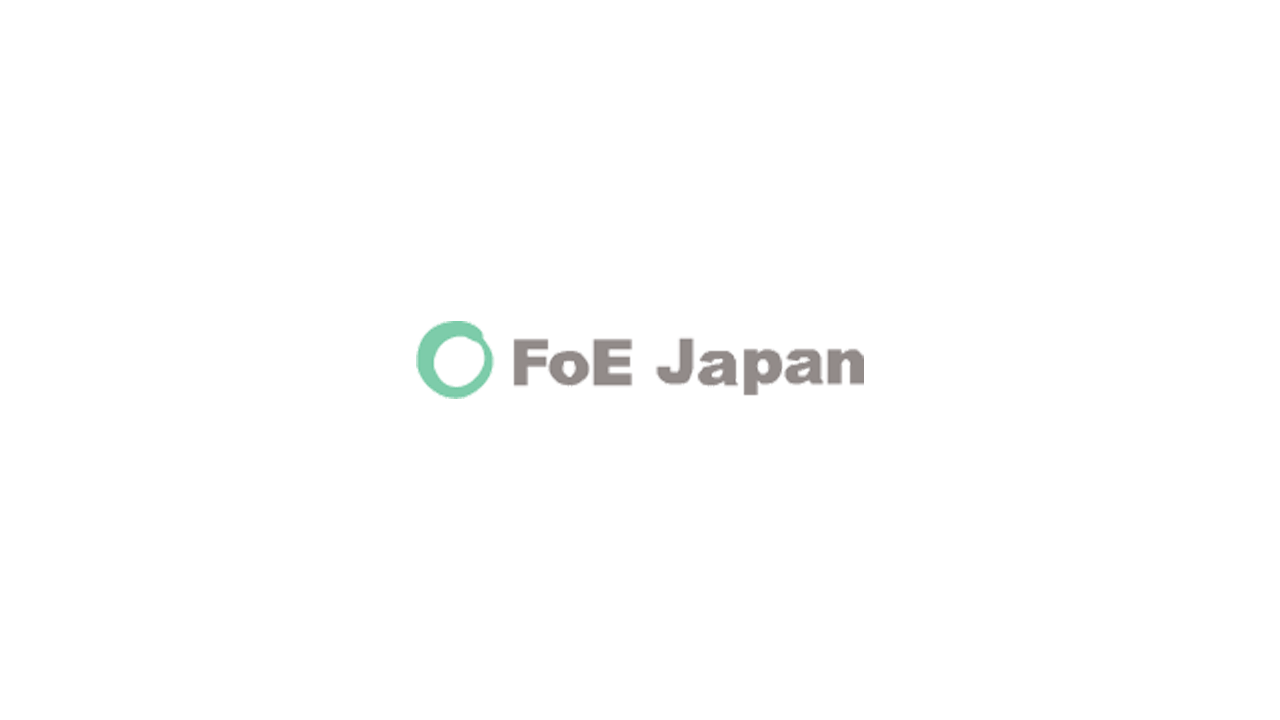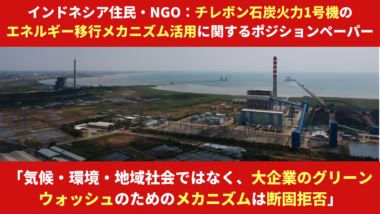Indonesian Communities and NGOs request before ADB Annual Meeting: "For the Sake of Climate, Environment, and Local Communities, Take the Current Approach under the Energy Transition Mechanism for the Early Retirement of the Cirebon Coal-Fired Power Plant Unit 1 Back to the Drawing Board for Now"
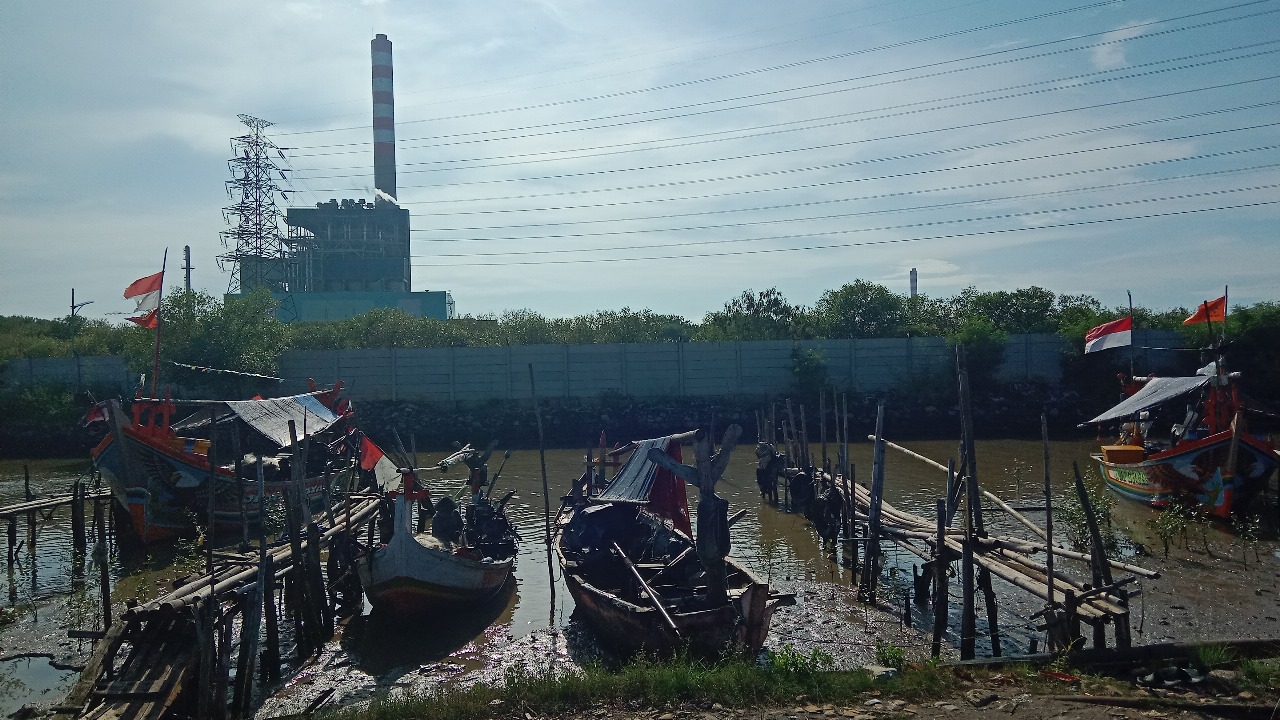
> PDF is available here (Translation in Japanese is available at here)
(This is a translation by WALHI West Java- The original document was written in Indonesian.)
Request: For the Sake of Climate, Environment, and Local Communities, Take the Current Approach under the Energy Transition Mechanism for the Early Retirement of the Cirebon Coal-Fired Power Plant Unit 1 Back to the Drawing Board for Now
April 30, 2025
Mr. Masato Kanda, President, Asian Development Bank
In the lead-up to the 58th Annual Meeting of the Asian Development Bank (ADB), which begins next week in Italy, we would like to send this request to bring to your attention once again the environmental, social, human rights, and other problems caused by the construction and operation of the Cirebon Coal-Fired Power Plant Unit 1 (Cirebon 1) and Unit 2 (Cirebon 2) in West Java, Indonesia, on which we have been advocating for many years.
The problems we have continuously raised are important matters to be considered in determining the framework for the early retirement of Cirebon 1 as well as in moving forward with that process. Since the Memorandum of Understanding (MOU) on this project was signed between the ADB, the Indonesia Investment Authority (INA), PT. PLN (Persero), and Cirebon Electric Power (CEP) on November 14, 2022, we have submitted at least the following documents to your bank to express our views in this regard.
- [Joint Statement] Climate, Environment and Social Conditions Require a Further Earlier Closure of Cirebon Coal Plant Unit 1 and a Halt to the Commencement of Operation in Cirebon Unit 2 – Reaction to the Announcement of the 1st Early Closure Plan of Coal Power Plant in Indonesia (14 November, 2022)[1]
- Request for Suspension of Loan Disbursement to Unit 2 and Responsible Action for the Early Retirement of Unit 1 in Cirebon Coal-Fired Power Plant Project, Indonesia (Dated 22 May, 2023)[2]
- Position Paper on the Application of the Energy Transition Mechanism for Cirebon Coal-Fired Power Plant Unit 1 in Indonesia: We firmly reject the mechanism for the sake of huge greenwashing by major corporations, not for the sake of the climate, environment, and local communities (28 February, 2024)[3]
- Request: Don’t Make a Premature Agreement that Disrespects Local Communities and Civil Societies on the Early Retirement of the Cirebon Coal-Fired Power Plant Unit 1 (1 October, 2024)[4]
However, the approach that your bank is currently pursuing under the Energy Transition Mechanism (ETM) for the early retirement of Cirebon 1 remains insufficiently understanding of the past and current problems and situations that we have pointed out to you. This is evident from the contents of your most recent response letter to us (dated October 31, 2024). In that response, your bank, while appreciating our letter, has only read the words and has not taken any effort to sincerely understand or adequately incorporate our views into its actions.
For example, with regard to participation and consultation, you explain that “Since July 2023, our team went down to Cirebon at four different instances to solicit inputs from a broad range of stakeholders,” and that “(We) engaged with at least 180 individuals composed of village heads and people from affected groups” etc. However, this does not mean that meaningful participation opportunities have been secured. The views of more local residents who have been affected by the construction and operation of Cirebon 1 must be respected and incorporated into the decision-making process through the CEP (the project proponent) or the village heads.
In addition, in the same response, your bank states “We regret that WALHI was unable to participate in this engagement.” However, we reiterate that we have refused to participate, not that we were unable to participate. The reasons for our refusal are the four points we noted in our position paper of February 2024[5], and as described below, no improvement has been made in any of these points to date.
Regarding the Cirebon 1 early retirement timeline, your bank has stated that “We understand your concerns about the urgency of retiring Cirebon 1 at the earliest possible date due to the imminent climate crisis” and that “The current timeline for retirement or repurposing by 2035 aims to balance these aspects (considering technical and financial constraints), ensuring that the transition is just and feasible." However, we have clearly raised as reasons for our position that “Cirebon 1 must retire as early as possible” not only the imminent climate crisis, but also the severe impacts that the construction and operation of Cirebon 1 have already had on the local residents in terms of their means of livelihood as well as their health, and the chronic oversupply of electricity in the Java-Bali power grid. From reviewing your bank’s response above, it appears that while your bank has considered the balance with technical and financial constraints, you have underestimated the impact on the local residents to date and the state of the electricity supply.
Regarding the “repurposing” of coal-fired power plants, your bank responded that “we are dedicated to backing various clean energy solutions”. However, there is still no answer as to whether or not the “clean” indicated by your bank excludes the “false solutions to climate change” such as uncertain hydrogen/ammonia that we have continuously expressed concern about. The “repurposing” of Cirebon 1 with technologies that extend the life of coal-fired power plants will only prolong the plant’s impact on local residents, and the environment, as well as the impact on the climate, and is not the kind of argument that defers evaluation and conclusions to 2028-2030.
With regard to the operation of Cirebon 2 (1,000 MW), which has higher total greenhouse gas emissions compared to Cirebon 1, your response was that “Cirebon 2 is a separate project with its own power purchase agreement and legal bindings, without any involvement by ADB.” However, we are not arguing about legal bindings or formalities. And while your bank responded in the same letter that “ADB is diligently working to obtain assurances from entities involved in ETM that they will refrain from pursuing new coal power investments”, It is not logical to mention like “without any involvement by ADB” concerning new coal plants, such as Cirebon 2.
The investors in CEP or the project proponent of Cirebon 1 are Marubeni (32.5%), Komipo (27.5%), Samtan (20%), and Indika Energy (20%), while those in Cirebon Energi Prasarana (CEPR), the project proponent of Cirebon 2, are Marubeni (35%), Samtan (20%), IMECO (18.75%), Komipo (10%), JERA (10%), and Indika Energy (6.25%). Thus, several investors including Marubeni have been announcing the early retirement of Cirebon 1 since November 2022, but started the operation of Cirebon 2 in 2023. This fact means that the investors involved in ETM continue to invest in new coal-fired power plants, and it is obvious that your bank’s above-mentioned “diligently working” has failed.
As for compensation for project proponents, your response was that “A fundamental principle of the ETM is to offer financing that maintains a neutral rate of return for CFPP sponsors while addressing the needs of workers and local communities during the transition”. First of all, however, such a fundamental principle of the ETM is a mechanism that allows companies to be exempted from liability for coal-fired power plants that should become stranded assets. It does not take into account any reasonable responsibility that large corporations, who have been promoting the construction and operation of coal-fired power plants and reaping enormous profits, should take for the cost to the climate, the environment, and the local communities. Such frameworks that are unfair and unjust for the climate, the environment, and local communities must be reformed.
Your bank responded that “We will continue to work towards a just and sustainable transition for Cirebon 1, ensuring that the voices of local communities and civil society are heard and respected.” To begin with, however, we reiterate the necessity to take the current ETM and frameworks for the early retirement of Cirebon 1 back to the drawing board for now. Following this, discussions toward the earliest possible retirement of Cirebon 1 must ensure meaningful participation from a broad range of stakeholders, including local communities, who have been affected by the construction and operation of Cirebon 1, as well as civil society. We again strongly request that your bank not make any premature agreement that disrespects the local communities and civil society.
WALHI Jawa Barat
WALHI Eksekutif Nasional
Rapel (Rakyat Penyelamat Lingkungan)
KARBON (KOALISI RAKYAT BERSIHKAN CIREBON)
Contact:
WALHI West Java
Address: Jalan Simphoni No. 29, Kel. Turangga, Kec. Lengkong, Kota Bandung, Jawa Barat 40264, Indonesia
TEL: +62 22 63175011
Email: walhijabar@gmail.com
[1] https://foejapan.org/en/issue/20221114/10291/
[2] https://foejapan.org/en/issue/20230531/13129/
[3] https://foejapan.org/en/issue/20240228/16374/
[4] https://foejapan.org/en/issue/20241001/20569/
[5] Same as footnote 3.
